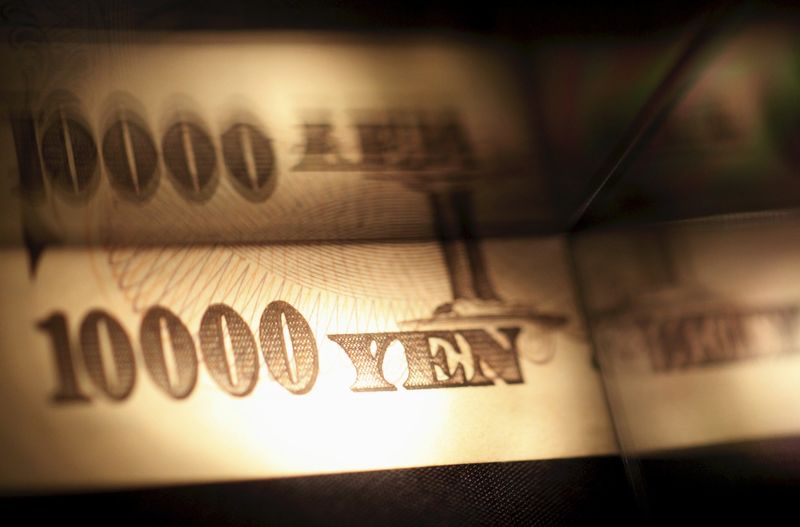By Lewis Krauskopf
NEW YORK (Reuters) - The yen tumbled against the U.S. dollar on Monday as Japan signalled it was ready to intervene in the currency market, while a drop in oil prices undercut stocks.
U.S. stock indexes were little changed, as the energy sector dragged. Europe's broad stock index gained as data showed German industrial orders rose more than expected in March.
Most U.S. Treasury yields fell as investors lowered estimates that the Federal Reserve will raise interest rates in June, after a weaker-than-expected jobs report.
"Today, really you’re seeing just that back-and-forth that has been here for months: very tight ranges, modest movements and just a mix between uncertainty and having such low interest rates that there isn’t somewhere else to go,” said Rick Meckler, president of LibertyView Capital Management in Jersey City, New Jersey.
"There isn’t a lot of conviction on the part of global investors for any of the asset classes," Meckler said.
The Dow Jones industrial average (DJI) was down 69.3 points, or 0.39 percent, at 17,671.33, the S&P 500 (SPX) was losing 2.51 points, or 0.12 percent, at 2,054.63 and the Nasdaq Composite (IXIC) was adding 6.48 points, or 0.14 percent, at 4,742.63.
Europe's broad FTSEurofirst 300 index (FTEU3) gained 0.4 percent. Germany's DAX (GDAXI) climbed 1.1 percent.
MSCI's world equity index (MIWD00000PUS) slipped 0.2 percent after posting its worst weekly performance since mid-February last week.
The U.S. dollar gained 1.2 percent against the yen, after the Japanese currency last week hit a 1-1/2 year high against the greenback.
Japanese Finance Minister Taro Aso said Tokyo is ready to intervene if yen moves are volatile enough to hurt the country's trade and economy.
"There is a risk of either currency intervention or BOJ (Bank of Japan) monetary policy easing in the months ahead, a risk that is, at least for now, keeping the yen's upside limited," said Omer Esiner, chief market analyst at Commonwealth Foreign Exchange in Washington.
Against a basket of currencies, the dollar (DXY) gained 0.2 percent.
Oil prices fell as traders took in their stride the impact of wildfires on Canada's oil output and after another inventory build at the U.S. hub for crude futures delivery.
U.S. crude (CLc1) dropped 2.3 percent to $43.62 a barrel, while benchmark Brent (LCOc1) dropped 3.3 percent to $43.88 a barrel.
U.S. Treasury yields fell as investors evaluated when the Fed is likely to raise rates.
Benchmark 10-year notes (US10YT=RR) were last up 5/32 in price to yield 1.7613 percent, down from 1.777 percent late on Friday.
Wall Street's top banks have all but abandoned any expectation that the Fed will raise interest rates in June, and most now see the U.S. central bank's next rate hike coming in September, according to a Reuters survey conducted on Friday.

Copper prices